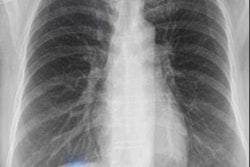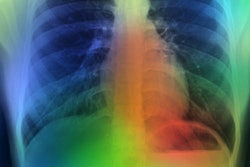
Women who smoke are less likely to undergo cancer screening, which often translates into more advanced disease when they are diagnosed, according to a study published August 13 in BMJ Open.
The results underline that there's more work to be done to reach out to women regarding cancer screening, regardless of their smoking status, wrote a team led by Dr. Jean Tang of Stanford University.
"Patients of all smoking histories should be encouraged to receive regular mammograms and [fecal occult blood test (FOBT)]/endoscopy, particularly active smokers who are less likely to seek screening," the group wrote. "Public health initiatives should continue the effort of encouraging smoking cessation to minimize smoking-related morbidities."
Tobacco use is decreasing in many parts of the world, but less so among women -- and lung cancer continues to be the leading cause of death in women, BMJ Open said in a statement. Tang's group sought to explore any link between smoking status and cancer screening by conducting a study that included data from 89,058 postmenopausal women who took part in the Women's Health Initiative Observational Cohort (WHI-OS) study.
Among these participants, 53% had never smoked, 41% were ex-smokers, and 6% were active smokers. The study tracked the women's health and cancer screening uptake for an average of nine years. During this time, investigators identified 7,054 cases of breast cancer, 1,600 cases of bowel cancer, and 61 cases of cervical cancer.
Tang and colleagues found that current smokers were significantly less likely to comply with cancer screening compared with former smokers, as indicated by the odds ratio of their being screened compared with women who never smoked, who were the reference standard (odds ratio = 1)
| Odds ratio of former smokers and current smokers undergoing cancer screening | ||
| Current smoker | Former smoker | |
| Mammogram within last 2 years | 0.55 | 1.05 |
| Pap smear within last 3 years | 0.53 | 1.10 |
| FOBT/endoscopy within last 5 years | 0.71 | 1.03 |
Additionally, women who smoked were also more likely to develop advanced disease than women who never smoked, the team found.
| Odds ratio of developing breast or colorectal cancer among former and current smokers* | ||
| Screening status | Current smoker | Former smoker |
| Breast cancer | ||
| Screened more than 2 years ago | 2.78 | 1.27 |
| Never screened | 2.95 | 2.49 |
| Colorectal cancer | ||
| Screened more than 5 years ago | 2.26 | 0.95 |
| Never screened | 1.19 | 1.27 |
The disparity in cancer screening compliance among former smokers and current smokers has to do with risk perception -- which is why public health education initiatives are so important, according to Tang's group.
"Concern for personal health is the most common reason given for smoking cessation among former smokers and may explain why this health-conscious population seeks cancer screening more frequently than never smokers," the group said in the BMJ Open statement. "On the contrary, smokers are overly optimistic about their health and consistently underestimate the magnitude of their cancer risk."




















